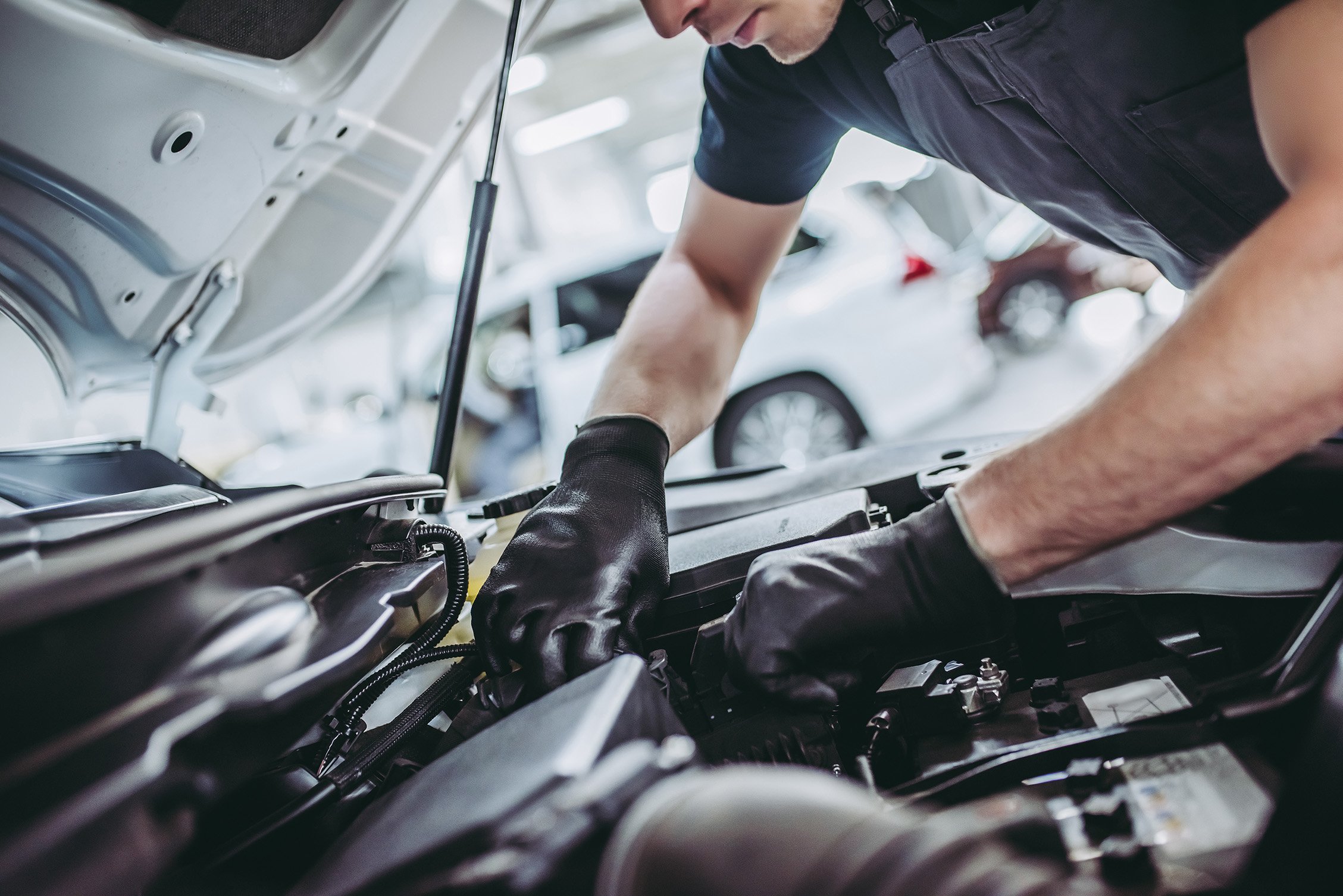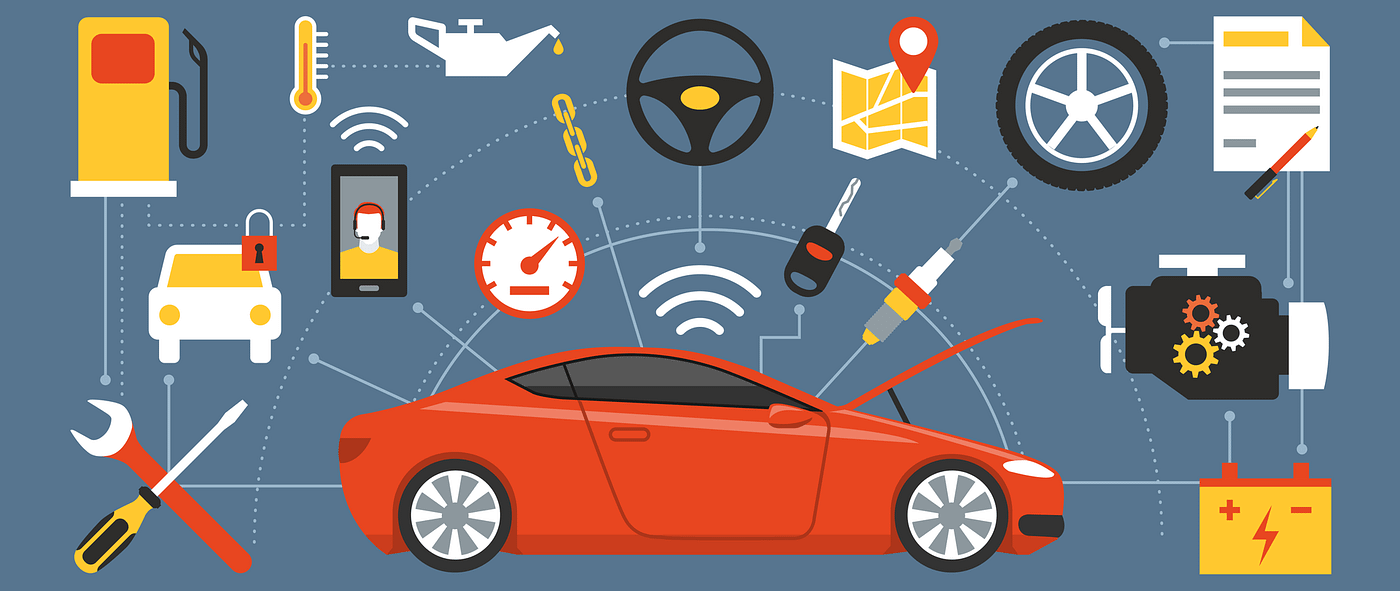All Categories
Featured
Accountable for integrating the rotation of the crankshaft and camshaft, the timing belt guarantees the engine's shutoffs open and close at the proper times throughout the combustion process. If the timing belt stops working, it can result in serious engine damage.
What Is a Timing Belt? The timing belt is a long, toothed rubber or composite belt that links the crankshaft to the camshaft(s) in an interior combustion engine. Its job is to maintain the engine's shutoffs and pistons in sync, making sure the engine runs effectively. The timing belt likewise manages various other critical engine functions like the water pump and the power guiding pump, depending on the car.
![]()
Without the appropriate timing, the engine's pistons and valves can collide, resulting in considerable and pricey damages. Changing the timing belt on routine is one of the best means to guarantee your engine runs at its finest and prevent pricey fixings.
Why Timing Belt Replacement Matters. Avoiding Catastrophic Engine Damage: One of the most significant threat of not changing a worn timing belt is engine failing. If the timing belt breaks while the engine is running, the camshaft and crankshaft can become misaligned, creating the shutoffs and pistons to collide. This can result in bent valves, damaged pistons, or even a ruined engine. Changing the timing belt at the recommended periods is the very best means to stop such catastrophic damages, conserving you from the tension and high cost of engine repairs or replacement.
![]()
Keeping Engine Effectiveness: A timing belt that's in excellent problem ensures that all engine components operate in perfect consistency. If the timing belt is put on or stretched, it can cause the engine to lose power, experience harsh idling, or struggle to begin. By replacing the timing belt consistently, you can maintain your engine running at peak performance, which aids preserve optimal fuel economic situation and efficiency.
Staying Clear Of Unexpected Malfunctions: A broken timing belt can create your engine to stop quickly, possibly leaving you stranded in the center of a journey. By replacing your timing belt on time, you decrease the threat of abrupt malfunctions that can leave you in a bothersome or harmful situation. Regular maintenance reduces the opportunities of experiencing these kinds of disruptions, helping you stay on the road longer without fretting about your engine falling short.
Cost-efficient Maintenance: Timing belt replacement is a lot less costly than fixing or changing an engine that's been harmed due to a timing belt failing. While the cost of replacing the timing belt may differ depending on your vehicle and its location, it is much much more cost effective than the costs related to significant engine repair services or substitutes. Changing your timing belt at the advised intervals can conserve you a substantial quantity of money over the long run by protecting against damages to your engine.
When Should You Change Your Timing Belt? The timing belt does not last permanently, and the majority of makers advise changing it in between 60,000 and 100,000 miles. The specific timing depends on your automobile's make, model, and driving conditions, so it's crucial to check your proprietor's manual for particular assistance.
Indicators that your timing belt might require interest consist of uncommon engine noises (such as a piercing whining or ticking noise), trouble beginning the engine, or a decrease in engine performance. If you see any of these indications, it's crucial to have the timing belt inspected by a specialist mechanic.
![]()
Conclusion. The timing belt is a vital however tiny element of your engine, and regular substitute is crucial to keeping your lorry's efficiency and avoiding expensive damage. By staying on top of timing belt upkeep, you'll guarantee your engine operates effectively, prevent unforeseen break downs, and secure your car from significant repair work. Watch on your lorry's recommended timing belt substitute routine, and constantly talk to a relied on auto mechanic to keep your engine running efficiently for many years to come.
What Is a Timing Belt? The timing belt is a long, toothed rubber or composite belt that links the crankshaft to the camshaft(s) in an interior combustion engine. Its job is to maintain the engine's shutoffs and pistons in sync, making sure the engine runs effectively. The timing belt likewise manages various other critical engine functions like the water pump and the power guiding pump, depending on the car.

Without the appropriate timing, the engine's pistons and valves can collide, resulting in considerable and pricey damages. Changing the timing belt on routine is one of the best means to guarantee your engine runs at its finest and prevent pricey fixings.
Why Timing Belt Replacement Matters. Avoiding Catastrophic Engine Damage: One of the most significant threat of not changing a worn timing belt is engine failing. If the timing belt breaks while the engine is running, the camshaft and crankshaft can become misaligned, creating the shutoffs and pistons to collide. This can result in bent valves, damaged pistons, or even a ruined engine. Changing the timing belt at the recommended periods is the very best means to stop such catastrophic damages, conserving you from the tension and high cost of engine repairs or replacement.

Keeping Engine Effectiveness: A timing belt that's in excellent problem ensures that all engine components operate in perfect consistency. If the timing belt is put on or stretched, it can cause the engine to lose power, experience harsh idling, or struggle to begin. By replacing the timing belt consistently, you can maintain your engine running at peak performance, which aids preserve optimal fuel economic situation and efficiency.
Staying Clear Of Unexpected Malfunctions: A broken timing belt can create your engine to stop quickly, possibly leaving you stranded in the center of a journey. By replacing your timing belt on time, you decrease the threat of abrupt malfunctions that can leave you in a bothersome or harmful situation. Regular maintenance reduces the opportunities of experiencing these kinds of disruptions, helping you stay on the road longer without fretting about your engine falling short.
Cost-efficient Maintenance: Timing belt replacement is a lot less costly than fixing or changing an engine that's been harmed due to a timing belt failing. While the cost of replacing the timing belt may differ depending on your vehicle and its location, it is much much more cost effective than the costs related to significant engine repair services or substitutes. Changing your timing belt at the advised intervals can conserve you a substantial quantity of money over the long run by protecting against damages to your engine.
When Should You Change Your Timing Belt? The timing belt does not last permanently, and the majority of makers advise changing it in between 60,000 and 100,000 miles. The specific timing depends on your automobile's make, model, and driving conditions, so it's crucial to check your proprietor's manual for particular assistance.
Indicators that your timing belt might require interest consist of uncommon engine noises (such as a piercing whining or ticking noise), trouble beginning the engine, or a decrease in engine performance. If you see any of these indications, it's crucial to have the timing belt inspected by a specialist mechanic.

Conclusion. The timing belt is a vital however tiny element of your engine, and regular substitute is crucial to keeping your lorry's efficiency and avoiding expensive damage. By staying on top of timing belt upkeep, you'll guarantee your engine operates effectively, prevent unforeseen break downs, and secure your car from significant repair work. Watch on your lorry's recommended timing belt substitute routine, and constantly talk to a relied on auto mechanic to keep your engine running efficiently for many years to come.
Latest Posts
Uncover Outstanding Vehicle Maintenance Care offered by Montclare Auto Repair – Expert Care for Your Vehicle
Published en
1 min read
Why Routine Vehicle Maintenance at Montclare Auto Repair Reduces Costs
Published en
1 min read
Explore Exclusive Auto Repair Offers in Chicago at Montclare Auto Repair
Published en
1 min read
More
Latest Posts
Uncover Outstanding Vehicle Maintenance Care offered by Montclare Auto Repair – Expert Care for Your Vehicle
Published May 29, 25
1 min read
Why Routine Vehicle Maintenance at Montclare Auto Repair Reduces Costs
Published May 25, 25
1 min read
Explore Exclusive Auto Repair Offers in Chicago at Montclare Auto Repair
Published May 22, 25
1 min read